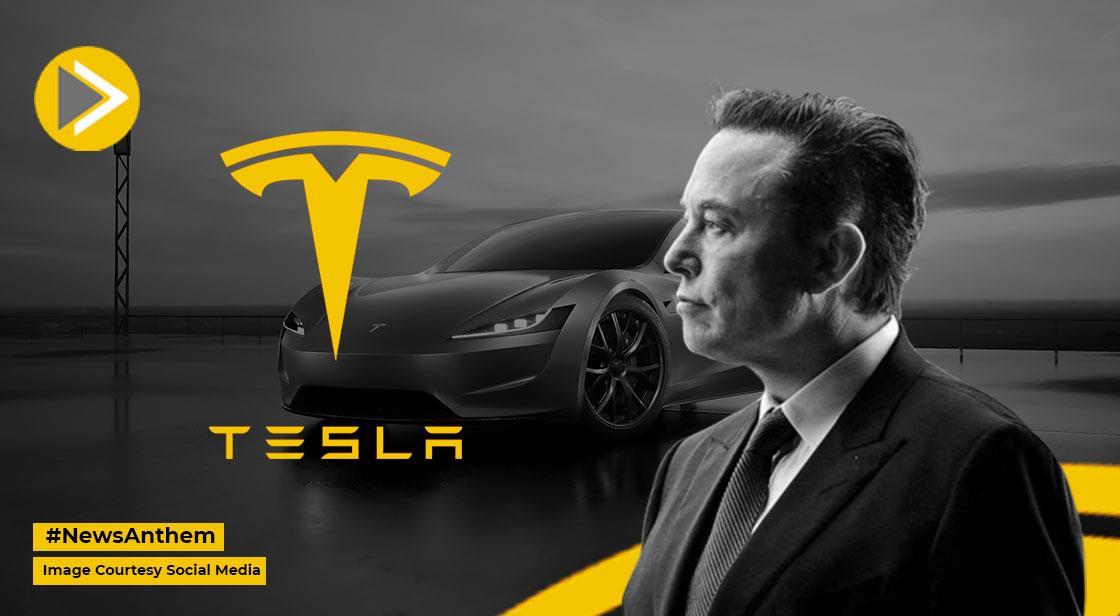Tesla Delivers First Fully Autonomous Model Y Ahead of Schedule in Historic Milestone

News Synopsis
In a historic achievement for the electric vehicle (EV) industry, Tesla has successfully completed the first-ever fully autonomous delivery of a Model Y, traveling from the factory to a customer’s residence without any human or remote operator involvement. Announced by CEO Elon Musk on June 27, 2025, this breakthrough has redefined the possibilities of self-driving technology, placing Tesla ahead of the competition in autonomous mobility.
A Day Ahead of Schedule: A Landmark in EV Delivery
The fully autonomous Model Y was delivered a day earlier than expected, completing a seamless journey across town, including travel on highways. The vehicle maintained speeds of up to 72 miles per hour throughout the route. This delivery was the first of its kind where no human was present inside the car or involved remotely, marking a significant milestone in the evolution of Level 4 autonomous driving.
Elon Musk announced the success via X (formerly Twitter), saying:
“There were no people in the car at all and no remote operators in control at any point. FULLY autonomous!”
Tesla’s Breakthrough in Full Self-Driving Technology
Tesla’s achievement highlights the capabilities of its Full Self-Driving (FSD) technology, powered by proprietary AI chips and neural network-based software. The Model Y used a robust suite of sensors—including cameras, radar, and ultrasonic sensors—to navigate traffic, obey signals, and make split-second driving decisions without any human oversight.
This showcases the growing maturity of Tesla’s FSD system, which now delivers Level 4 autonomy—where the vehicle can manage all driving tasks under certain conditions independently. It signals that Tesla is moving closer to Level 5 autonomy, the industry’s ultimate goal.
What This Means for EV Owners
The first autonomous delivery could mark the beginning of a major shift in how vehicles are distributed and received. For buyers, the ability to receive their car without human involvement:
-
Increases convenience
-
Reduces delivery time
-
Lowers costs associated with manual transport
Musk stated:
“The first fully autonomous delivery of a Tesla Model Y from factory to a customer home across town, including highways, was just completed a day ahead of schedule!!”
This kind of innovation could become standard for Tesla, giving it a competitive edge while reshaping the logistics model for vehicle deliveries.
Industry-Wide Implications
Tesla’s autonomous delivery has far-reaching implications beyond its own brand. Other automakers and tech companies will likely feel pressure to accelerate development in self-driving technologies to stay relevant.
This milestone may also open doors to future applications like:
-
Autonomous ride-hailing services
-
Driverless logistics and delivery fleets
-
Urban mobility transformation through AI-driven vehicles
As Tesla continues to refine its FSD system, the industry could see faster adoption of AI-enabled transportation.
Technical Highlights: AI at Highway Speeds
The Model Y’s autonomous run showcased Tesla’s hardware and software engineering excellence. The vehicle maintained 72 mph, managed on-ramps, traffic, and lane changes, and arrived at the destination flawlessly.
The success is attributed to Tesla’s in-house AI chip, designed to process massive data in real-time, allowing the system to plan routes, detect objects, and respond to dynamic road scenarios instantly.
This also reflects Tesla's edge in AI model training, which continuously improves as more real-world driving data feeds the neural networks.
Regulatory Challenges and Opportunities
Tesla’s achievement, while groundbreaking, brings new challenges for policymakers. Current U.S. road safety regulations generally require some form of human oversight during vehicle operation. The fact that no driver or remote operator was involved may prompt regulatory bodies to:
-
Reassess safety certification for Level 4 and Level 5 autonomous vehicles
-
Develop frameworks for fully driverless deliveries
-
Implement new AI compliance and liability standards
Musk noted:
“To the best of our knowledge, this is the first fully autonomous drive with no people in the car or remotely operating the car on a public highway.”
This could accelerate conversations with the National Highway Traffic Safety Administration (NHTSA) and other global regulators.
Economic and Market Impact
Although the Model Y’s starting price is around $44,990 USD, the inclusion of autonomous capabilities may increase its price point. However, Tesla expects long-term cost savings in logistics, as it reduces dependence on manual labor and delivery infrastructure.
Wider adoption of this model could:
-
Lower operational costs for Tesla
-
Streamline vehicle delivery processes
-
Offer added value to customers willing to invest in autonomy
What’s Next: Video Evidence Coming Soon
To offer transparency and validate the achievement, Elon Musk confirmed that a video of the autonomous delivery will be released soon. This will provide insight into the real-world capabilities of Tesla’s FSD and may further boost confidence among customers and investors.









